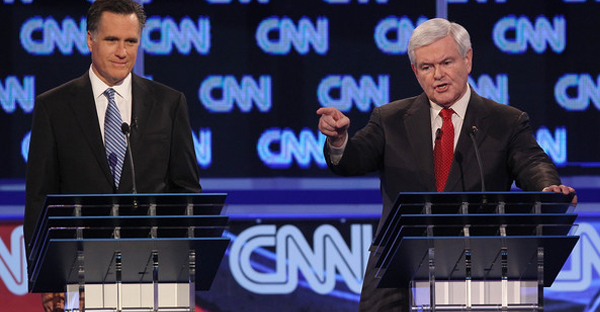Who would have thought it? Newt Gingrich, the temperamental former House Speaker with a checkered personal history, has made a comeback. Again.
Of course, political advantage is notoriously short-lived during primary season, particularly the debate-larded GOP one we’ve seen so far. And the Gingrich rise may say as much about the shallowness of Romney’s support, and his campaign’s missteps, than it does about the former Speaker. But there are some lessons here. The Gingrich campaign has shown real PR smarts in recent weeks, including mastery of the following communications and messaging principles.
Own the story. As a reputed “idea guy,” Gingrich is well schooled in floating new, or newly packaged, concepts that are often colorful and provocative. He’s skilled at elevating the narrative beyond his own issues (e.g. personal baggage) and generating buzz about the future. The latest – space travel and the promise of a moon colony – is a stretch, but it takes some of the pressure off other, more complicated issues.
Get in front of the bad stuff. Gingrich made a smart move just hours before the CNN debate in South Carolina last week by releasing his tax returns. Though his consulting work for Freddie Mac and his relatively high income are potential liabilities, the timing was brilliant. (And his tax rate is far higher than Romney’s.) The move turned up the heat on Romney to release his own returns, distracting from the news itself and dwarfing the size of the Gingrich assets and income in a flash.
Identify a “safe” enemy. As the world knows, Gingrich’s finest PR moment came just after what could have been a fatal disclosure for his campaign, – the allegation by ex-wife Marianne that he asked her for an “open marriage.” But when CNN’s John King threw out the question for the Speaker’s comment like a slow pitch at the start of a baseball game, Gingrich knocked it out of the park. His tactic was to turn the question into an attack on the media, a favorite whipping boy of the campaign and the party base.
Turn your liabilities into assets. He’s been called thin-skinned, mercurial and grandiose. But last week, Gingrich’s passion, indignation, and outrage really sold his message. When it was focused on the “elite” media, it gave the Speaker a bit of sympathy, and even moral authority. Demonizing the media was far more effective than criticizing his fellow GOP-ers, since it was a uniting force and spoke directly to the voters.
Master your flaws. Where properly focused, as noted, Gingrich’s outrage was very effective. But a little goes a long way, particularly given his reputation for anger. So, he dialed the temperature way down in the subsequent debate this week in Florida. While it made for a far duller session, the “presidential” demeanor thwarted critics hoping for another blow-up, tempering his feisty image.
Where Gingrich has erred, in my opinion, is in sharpening his attacks on Romney after pledging not to go negative. The campaign has already backed down from a nasty anti-Romney ad in Florida, and it will be interesting to see how it walks the line as things heat up down South.

